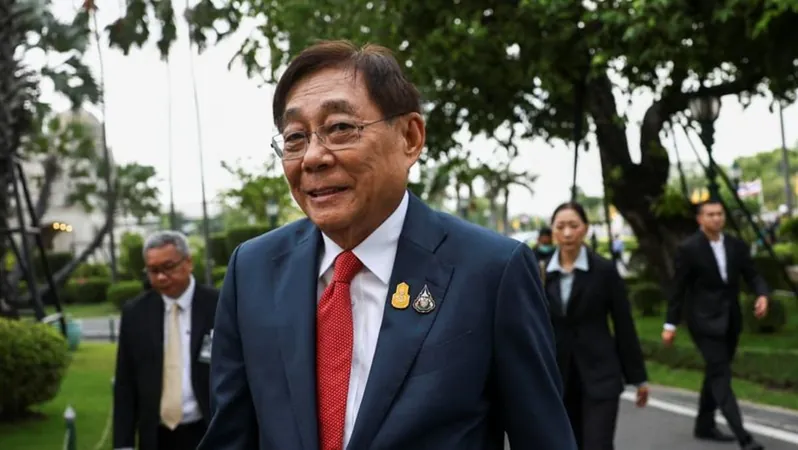
Thai Finance Minister Warns of Impact from US Auto Tariffs on Auto Parts Exports
2025-03-27
Author: Mei
Impact of U.S. Tariffs on Thailand's Automotive Industry
In a significant development for Thailand's automotive industry, the country's Finance Minister, Pichai Chunhavajira, announced on Thursday that recent U.S. tariffs on auto imports are set to negatively affect Thailand's auto parts exports. He expressed hope for negotiations that would allow Thai manufacturers to send auto parts directly to the U.S., bypassing potentially costly routes through other countries.
Thailand as an Export Base
Thailand is recognized as Southeast Asia's largest auto production hub, serving as an export base for major global automakers such as Toyota and Honda. The newly imposed 25% tariffs on imported vehicles by the U.S. — a move that has intensified a global trade war — has sparked concerns from Thailand and other allies affected by these trade policies.
Minister's Concerns and Optimism
Minister Pichai indicated that these tariffs would likely reduce the volume of auto parts exported from Thailand to other countries engaged in vehicle production. He noted, “We'll have to see how much it will affect us,” emphasizing the importance of direct negotiations to send components to the U.S. In his view, it could take significant time for automotive companies to relocate production facilities to the U.S. to mitigate the impact of the tariffs.
Views from the Industry
Yeap Swee Chuan, the chief executive of AAPICO Hitech, one of Thailand's premier auto parts manufacturers, suggested the damage from the tariffs might be limited. Yeap pointed out that the majority of their supplies are directed toward local Japanese car manufacturers, whose vehicles are generally not aimed at the U.S. market.
Challenges Ahead
While only a minor share of AAPICO's production is exported directly to the U.S., Yeap remarked that the introduction of tariffs on auto parts would pose challenges for sending those components across the Pacific Ocean.
Future Trade Considerations
The Finance Minister further noted that additional exports might come under the spotlight next week when President Trump is expected to announce further tariffs. Pichai remained optimistic, stating that there is still time to evaluate potential impacts and engage in negotiations. “Let’s wait and see,” he added, indicating a cautious approach in addressing these trade issues.
Thailand’s Trade Surplus Concerns
Amid these developments, Thailand is particularly concerned about its substantial trade surplus with the United States, which could make it a target for further U.S. trade actions in the future. This evolving situation underscores the interconnectedness of international trade and the vulnerability of countries reliant on key export markets like the United States.


 Brasil (PT)
Brasil (PT)
 Canada (EN)
Canada (EN)
 Chile (ES)
Chile (ES)
 Česko (CS)
Česko (CS)
 대한민국 (KO)
대한민국 (KO)
 España (ES)
España (ES)
 France (FR)
France (FR)
 Hong Kong (EN)
Hong Kong (EN)
 Italia (IT)
Italia (IT)
 日本 (JA)
日本 (JA)
 Magyarország (HU)
Magyarország (HU)
 Norge (NO)
Norge (NO)
 Polska (PL)
Polska (PL)
 Schweiz (DE)
Schweiz (DE)
 Singapore (EN)
Singapore (EN)
 Sverige (SV)
Sverige (SV)
 Suomi (FI)
Suomi (FI)
 Türkiye (TR)
Türkiye (TR)
 الإمارات العربية المتحدة (AR)
الإمارات العربية المتحدة (AR)